Monty and Rose were famed as the first pair of endangered Great Lakes Piping Plovers to nest in Chicago since 1948. What’s lesser known is that their first nesting attempt took place in Lake County, Illinois. In 2018, a year before making Montrose Beach their home, Monty and Rose attempted to nest in a parking lot of Waukegan Beach, in the city of Waukegan. This site was considered unsafe for the plovers to successfully incubate their eggs. To protect Monty and Rose’s offspring and ensure their survival, the eggs were taken to University of Michigan Biological Station in Pellston, Michigan to be captive-reared at the Great Lakes Piping Plover Captive-rearing Center.
Monty and Rose’s appearance in Waukegan stirred excitement and hope within the local birding and conservation community. In 2019, one year after the arrival of Monty and Rose, Lake County Audubon Society, a chapter of National Audubon Society, launched the “Sharing our Shore – Waukegan” program (SOS-W) in partnership with the City of Waukegan to engage the community in protecting nesting Piping Plovers at the Waukegan lakefront. While Monty and Rose have since died, their brief lives inspired a program that will help protect other Piping Plovers for years to come.
Captive-reared Piping Plovers Released on the Shores of Lake County
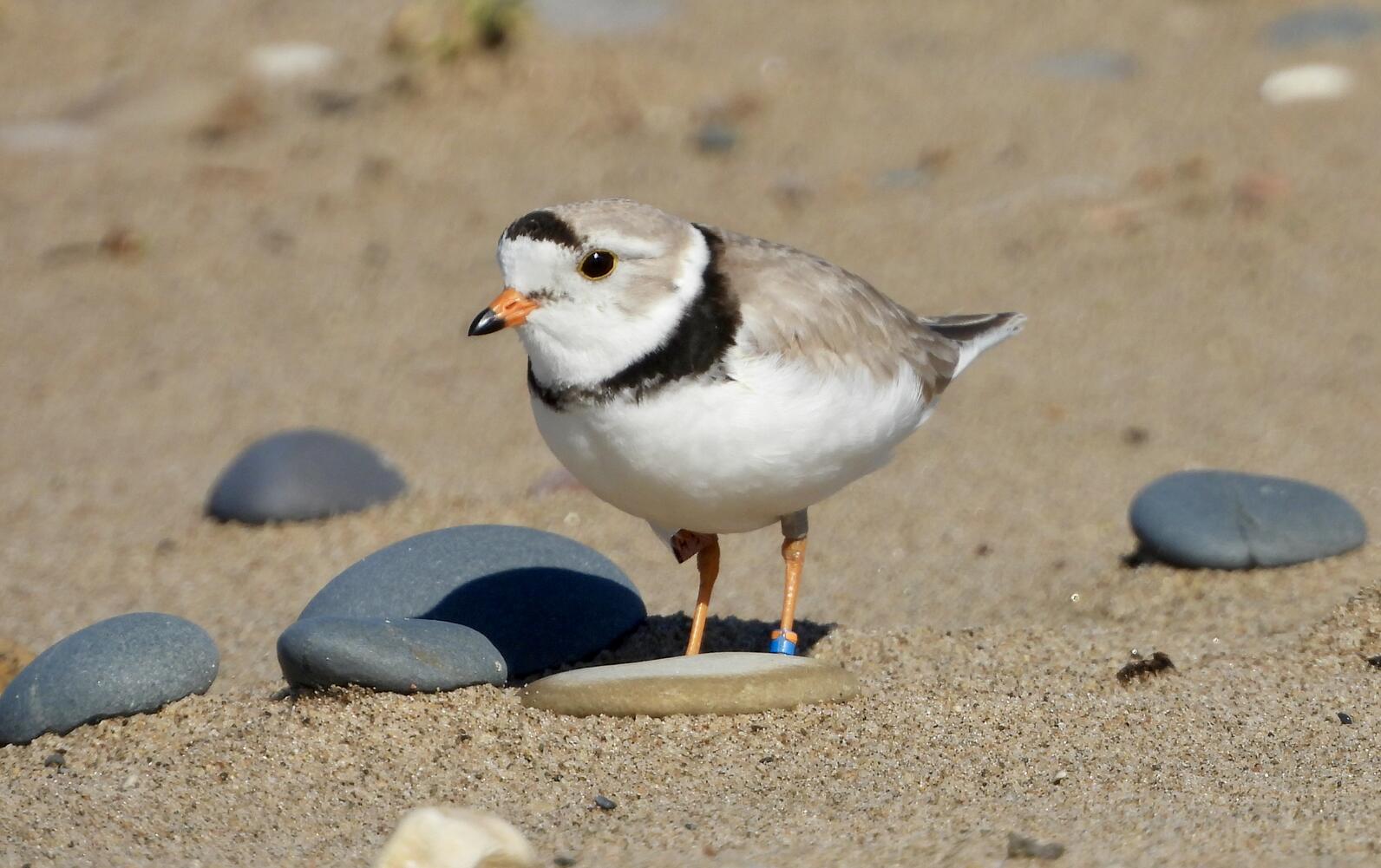
Monitoring and outreach programs like SOS-W are just one piece of the broader conservation efforts coordinated by the larger Great Lakes Piping Plover Conservation Team, which is made up of dozens of partners across the region. These partners undertake a number of conservation strategies to protect plovers including restoring their habitat, protecting their nests, monitoring sites, education and outreach, annual banding and captive rearing – the process of collecting eggs when necessary, raising the chicks in captivity, and then releasing them back into the wild.
In July of 2023, four captive-reared Piping Plover fledglings were ready to be released into the wild. Members of the Conservation Team in partnership with the Illinois Department of Natural Resource, worked to identify a suitable release site. Thanks to improved shoreline habitat, previous interest in the area by Monty and Rose, and the presence of a pre-existing Sharing Our Shore-Waukegan program, Lake County was selected as the release site, marking the first time that captive-reared chicks were released in Illinois!
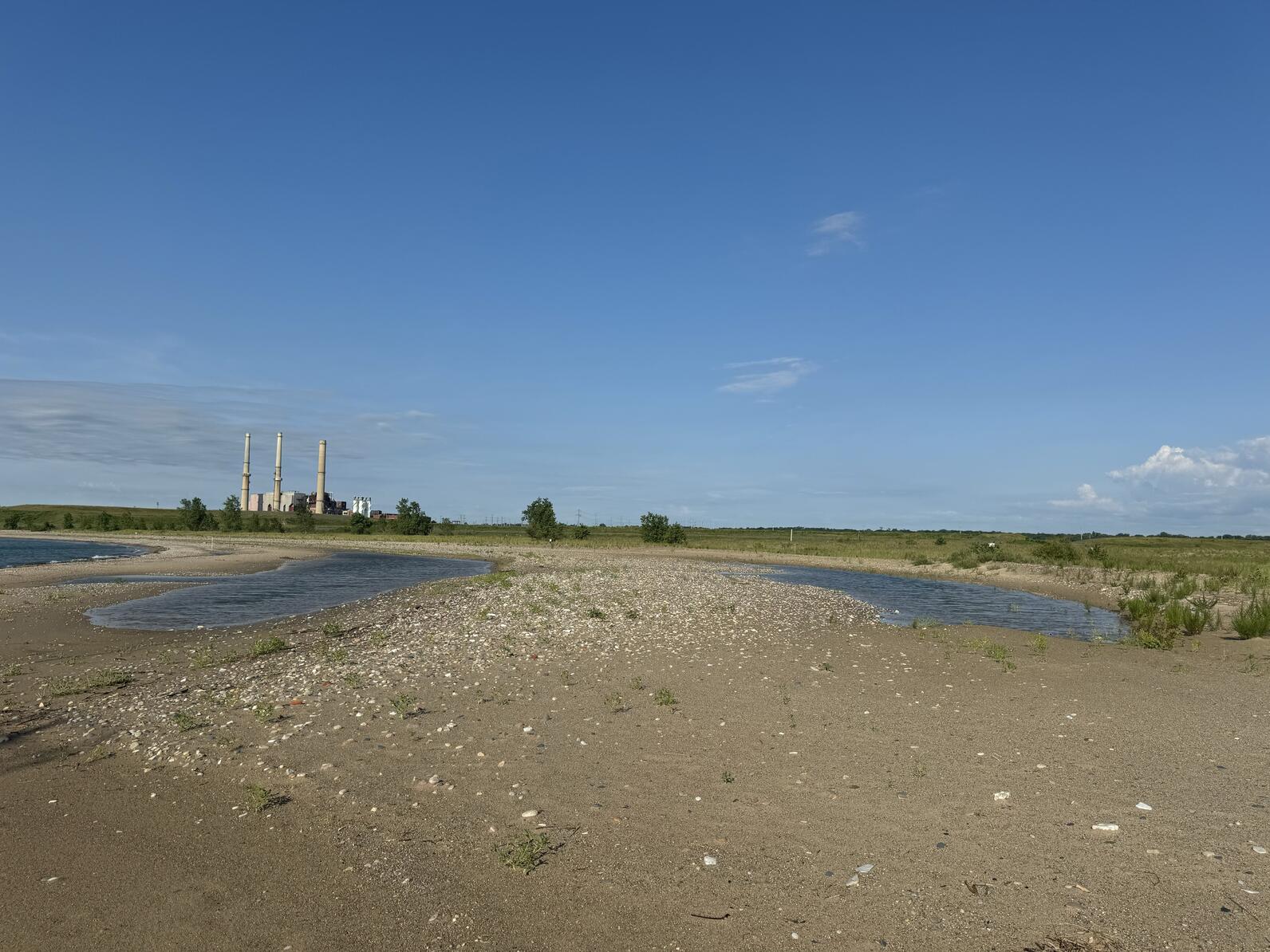
While Waukegan's shores have been historically plagued by industrial waste and major Superfund sites, a long-term cleanup effort led by local conservation organizations and government agencies over the past two decades has led to an improved shoreline habitat. The restricted beach in Waukegan is also home to what is known as a “fluddle,” which is a shallow body of water that is between a flood and puddle. Fluddles, especially those that don’t dry out mid-summer, are excellent feeding sites for Piping Plovers.
Blaze, a female Piping Plover, and Pepper, a male Piping Plover, were among those released and monitored by SOS-W volunteers. Blaze and Pepper returned to Waukegan in the spring of 2024 to nest and they successfully raised three fledglings this past summer.
Monitoring Piping Plovers Year-Round
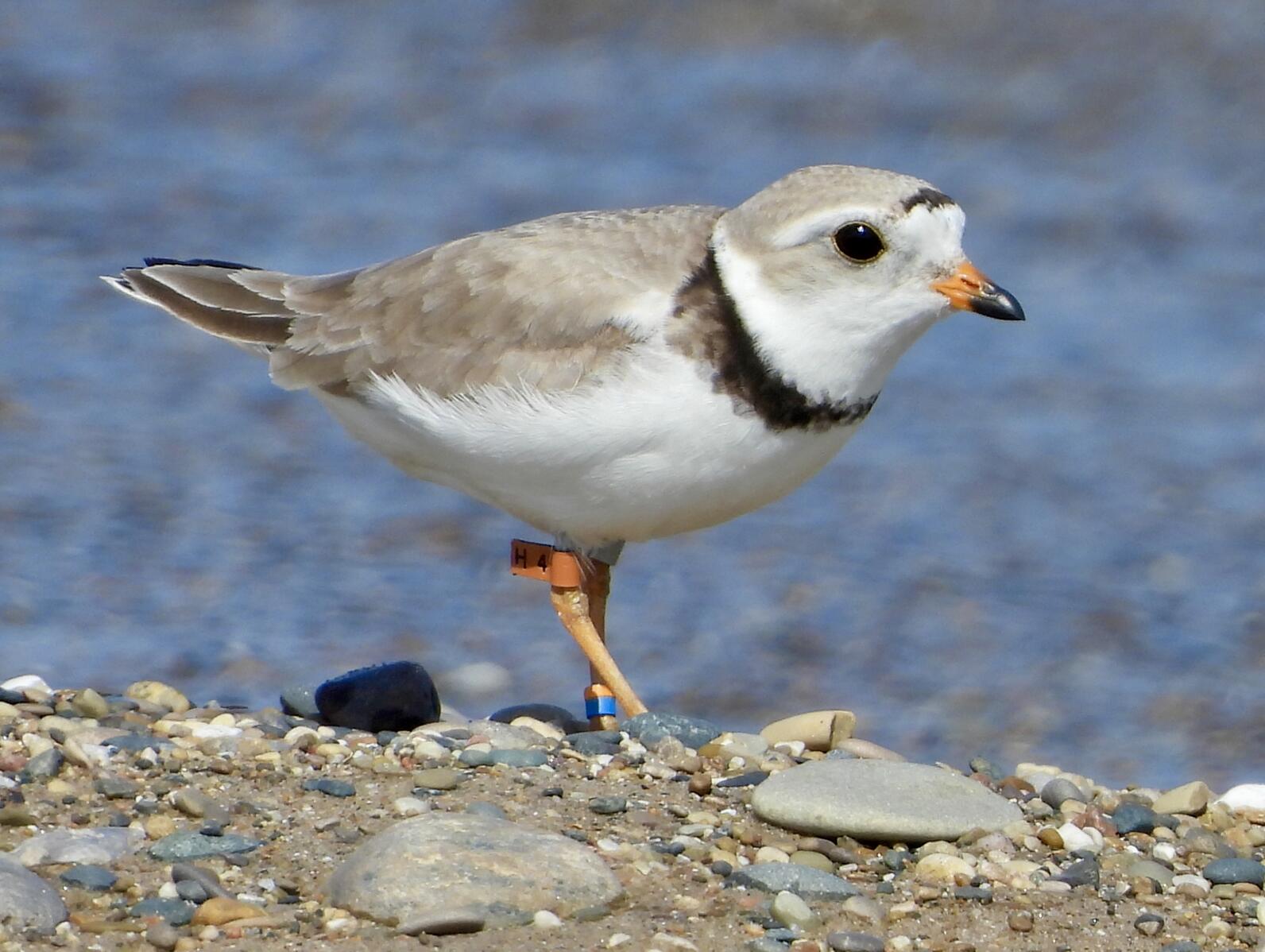
As a partner of the Great Lakes Piping Plover Conservation Team, Audubon’s hemispheric monitoring efforts have helped support the monitoring of Blaze, Pepper and other Piping Plovers on their Great Lakes breeding grounds in Waukegan as well as on their wintering grounds along the coast of North Carolina.
Lake County Audubon Society, through the SOS-W program, recruits and coordinates volunteers for summer Piping Plover monitoring. Each nesting season from May to August, volunteer monitors record their observations of Piping Plover nesting activity and spend hours at the beach, taking different shifts, in search of these endangered shorebirds and their nests. For volunteers like Carolyn Lueck, Sharing Our Shore Committee Member for Lake County Audubon Society, this year was thrilling and wonderful to observe their behaviors and work with others to help protect them.
Volunteers are also hard at work keeping a protective eye out for any threats or disturbances to the plovers or their nests. The data volunteers collect support research on habitat use, survival, and if necessary, signal to experts when it may be time to intervene with captive-rearing.
Once Blaze, Pepper and other Piping Plovers fly south for the winter, other Audubon organizations and volunteers watch for the tagged birds at wintering locations across the Atlantic and Gulf coast, including North Carolina Audubon staff who monitor them in the state. North Carolina Audubon staff observed Blaze in the winter of 2023, and re-sighted Blaze just last month in nearly the same location!
Engaging the Community
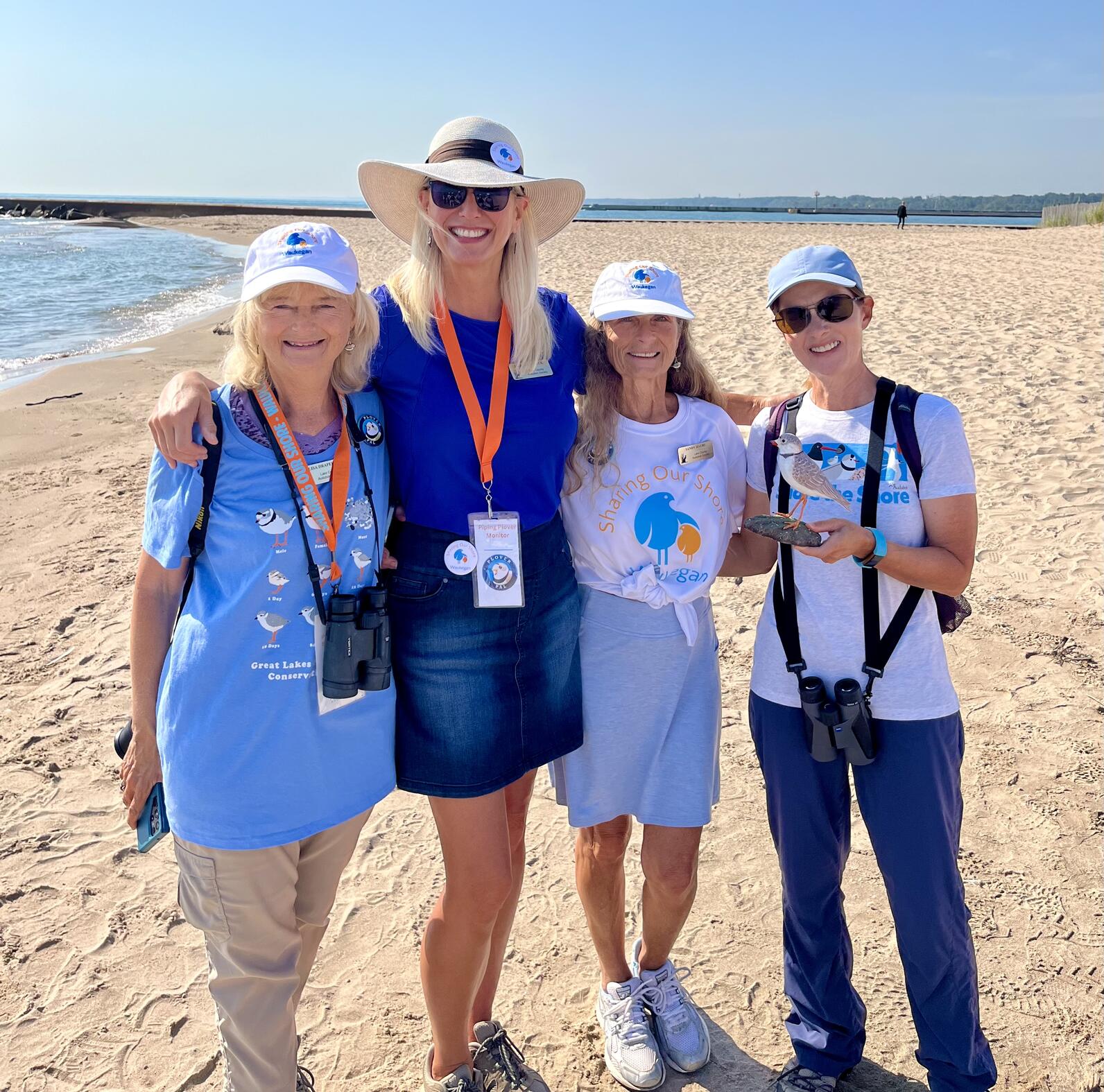
SOS-W aims to foster a sense of appreciation and responsibility for the Piping Plovers and their habitat by connecting residents with their local beaches and nature preserves. SOS-W partners engage the public in habitat stewardship and educational initiatives that raise awareness about Piping Plovers and develop policies and practices for sustainable shore use.
The program's work engaging the Waukegan community in Piping Plover conservation was recognized with a Community Service Award from the Waukegan Park District and Cultural Arts Department. SOS-W was selected for the award for their creation of the 2023 silent film “Four Little Birds, One Extraordinary Journey,” which played during a live performance with the Waukegan Symphony Orchestra during the family concert, “Animals in the Forest.” The film highlighted the positive impact SOS-W partners and volunteers have had on both the environment and the community, which now includes the nesting success of Blaze and Pepper and their three fledglings.
This year marks the third consecutive record-breaking nesting season for Great Lakes Piping Plovers whose population is soaring to new heights. The countless hours of hard work, many helping hands, and vigilant protection efforts across the Great Lakes Piping Plover Conservation Team, including SOS-W, are paying off.
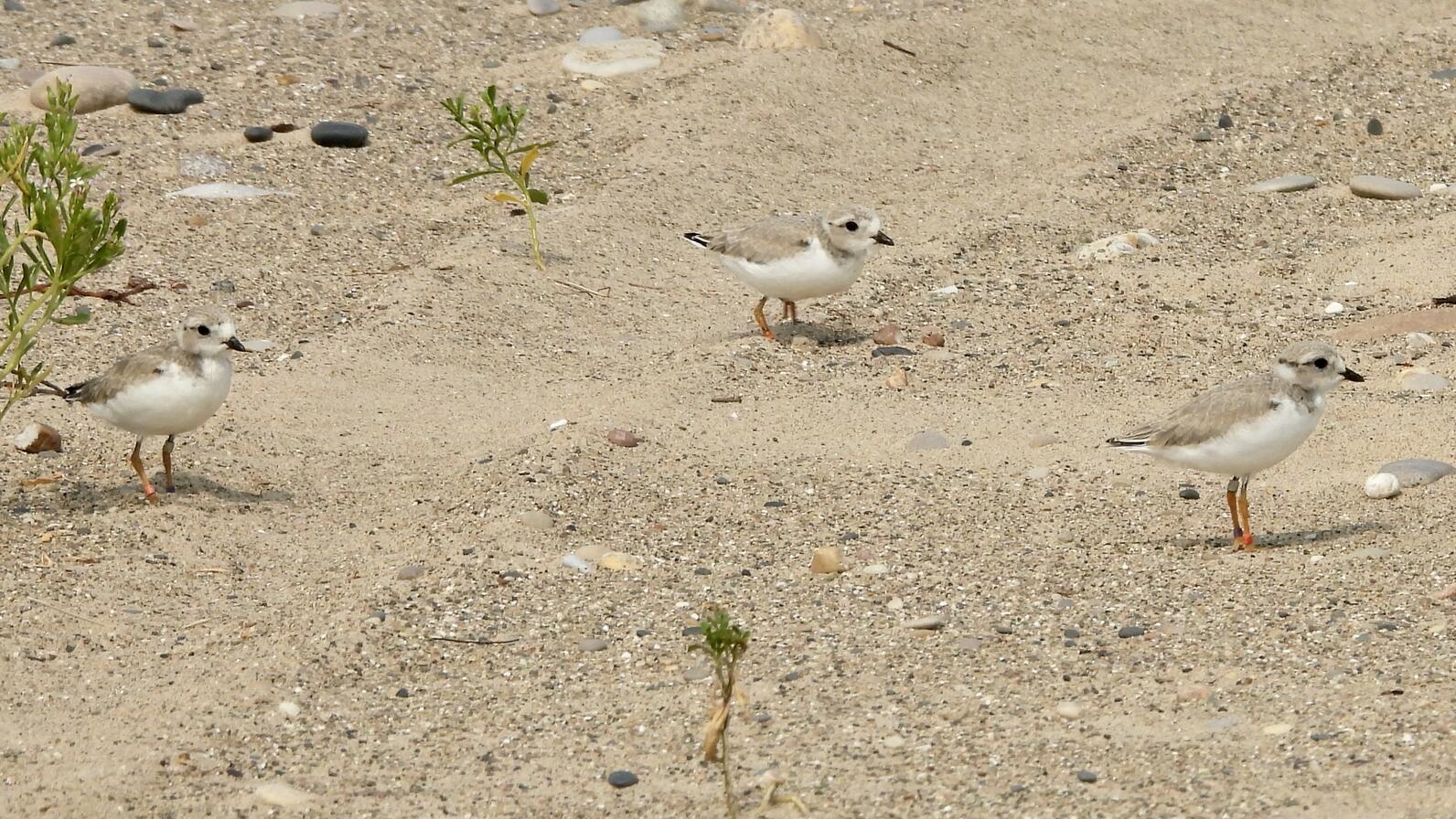
Looking ahead, SOS-W and Lake County Audubon Society volunteers hope SOS-W can serve as a model for other coastal communities looking to further boost Great Lakes Piping Plover populations across the region.
Visit Lake County Audubon Society's facebook page and website if you’re interested in learning more about the SOS-W program and how to get involved.
If you’re not local to Waukegan, but are still interested in supporting Great Lakes Piping Plovers, you can help by reminding others to share the shore when plovers return to our shores next spring using our social media toolkit.
-- Izabela Grobelna, Engagement Manager for Audubon Great Lakes, with contributions by Sandra Coleman, Intern for Audubon Great Lakes





